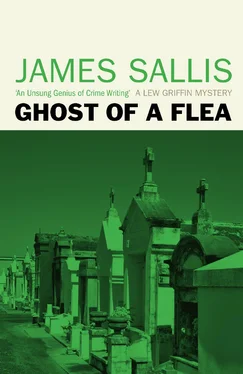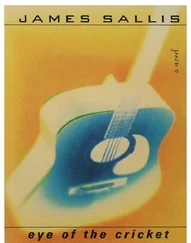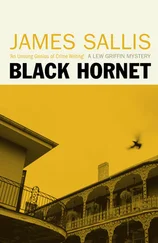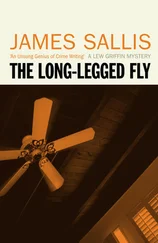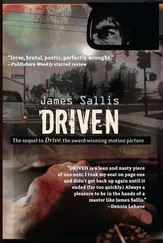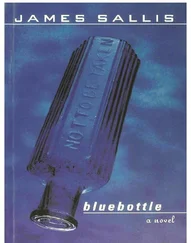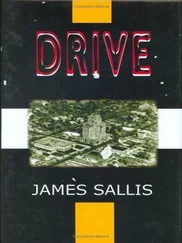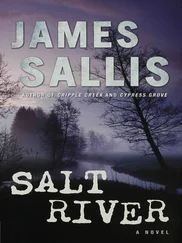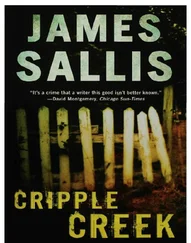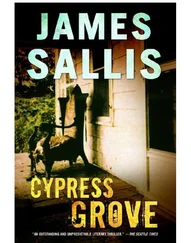James Sallis - Ghost of a Flea
Здесь есть возможность читать онлайн «James Sallis - Ghost of a Flea» весь текст электронной книги совершенно бесплатно (целиком полную версию без сокращений). В некоторых случаях можно слушать аудио, скачать через торрент в формате fb2 и присутствует краткое содержание. Жанр: Криминальный детектив, на английском языке. Описание произведения, (предисловие) а так же отзывы посетителей доступны на портале библиотеки ЛибКат.
- Название:Ghost of a Flea
- Автор:
- Жанр:
- Год:неизвестен
- ISBN:нет данных
- Рейтинг книги:4 / 5. Голосов: 1
-
Избранное:Добавить в избранное
- Отзывы:
-
Ваша оценка:
- 80
- 1
- 2
- 3
- 4
- 5
Ghost of a Flea: краткое содержание, описание и аннотация
Предлагаем к чтению аннотацию, описание, краткое содержание или предисловие (зависит от того, что написал сам автор книги «Ghost of a Flea»). Если вы не нашли необходимую информацию о книге — напишите в комментариях, мы постараемся отыскать её.
Ghost of a Flea — читать онлайн бесплатно полную книгу (весь текст) целиком
Ниже представлен текст книги, разбитый по страницам. Система сохранения места последней прочитанной страницы, позволяет с удобством читать онлайн бесплатно книгу «Ghost of a Flea», без необходимости каждый раз заново искать на чём Вы остановились. Поставьте закладку, и сможете в любой момент перейти на страницу, на которой закончили чтение.
Интервал:
Закладка:
James Sallis
Ghost of a Flea
My beautiful ship O my memory
Have we sailed far enough
In waters bad to drink
Have we sailed far enough
From the beautiful dawn to the sad evening!
— ApollinaireChapter One
After a while I got up and walked to the window. I felt that if I didn’t say anything, if I didn’t think about what had happened, didn’t acknowledge it, somehow it might all be all right again. I listened to the sound of my feet on the floor, the sounds of cars and delivery vans outside, my own breath. Whatever feelings I had, had been squeezed from me. I was empty as a shoe. Empty as the body on the bed behind me.
A limb bowed and pecked at the window, bowed and pecked again. Winds were coming in across Lake Ponchartrain with pullcarts of rain in their wake. I heard music from far off but couldn’t tell what it was, not even what kind. Maybe only wind caught in the building’s hard throats and hollows, or the city’s random noise congealing.
I seem never to learn that standing still doesn’t work. There you are with a smile on your face, they won’t notice me, and all the while all the things you fear keep moving towards you, their smiles a violent travesty of your own. “In your books you never write about anything that’s not past, done with, gone,” LaVerne had said years ago. She knew that was a way to stand still, too. And she’d been right-about that as about so much else.
Sooner or later I’d have to move. Go back out there, into the world, a world much smaller now, where it was about to rain. And where one of the coldest winters in New Orleans history like a bit player waited impatiently in the wings, strutting and thrumming, for its cue to go on.
I’d spent my life in rooms much like this. You move, like a hermit crab, into their shell. Then in time, as old clothes and mattresses do, they begin taking on your form. Their safe, familiar walls are a second skin. You and the room become of a size and kind, indistinguishable. The room, its surfaces, its volumes, diminish when you leave; and you in turn, away from the room too long, find yourself growing restless, edgy, at loose ends.
I peered out the window, a dim image of the room behind me superimposed there like a fading photograph or one taken too soon from the developing tray, suspended half-formed, neither wholly out of the world nor quite a part of it. The window had become a universal mirror. In it everything was reversed, turned about, transformed: light bled away to darkness, walls and corners bent to obscure, indecipherable shapes, the whole of the room lumpen, autumnal.
And out there in the window-world where a moth beat against glass, a man I knew both too well and not at all stood watching. A man dark and ill-defined, with the mark of lateness, of the autumnal, upon him too.
I remembered Henry James’s remark upon meeting George Gissing that he appeared to be a man “quite particularly marked out for what is called in his and my profession an unhappy ending.” Gissing had deployed his creativity as the single dynamic force in a life otherwise marked by doubts and indecision, discord, disappointment, disillusion. All of which had a familiar ring to it.
I must come to some sort of conclusion , I suppose, I had written, years ago. I can’t imagine what it should be .
Now I knew.
All the people we’ve met, all those memories and voices, real or imagined, the hoarse whisper of our communal sadness, the beat of regret and sorrow in our blood, the haphazard apprehensions that have made us what we are-they’re out there now in the darkness, all of them, at these silent barricades. All the people (as LaVerne used to say) we’ve watched disappear out the back windows of trains. LaVerne, parents, Hosie Straughter, Vicky, Baby Boy McTell. Myself. This odd man Lew Griffin who understood so much about others and so little, finally, about himself.
Another moth joins the first. Together, apart, they beat soundlessly at the window’s periphery. This latecomer, a sphinx moth, has the body of a bulldog, colors like those of an oil slick in moonlight. Also called a hawkmoth. I watch the two familial insects, who could scarcely be more dissimilar, bump and bounce away from the window, skitter the length of its glass in long slides. Perhaps I should value my life more, that something else so badly wants in.
Because the volume has been increased, or because other sounds have fallen away, I can make out the music now. Charlie Patton’s slurred voice and guitar, like hands that have gone into water and come out with something shapeless, something that nonetheless coheres for just a moment before it begins spilling away. Po’ Boy, Long Way from Home.
A long way indeed.
Here in this still room, then, in this moment before the world returns in a rush and bears me back into it, I will tell you what I know: It is not yet midnight. It is not yet raining.
Chapter Two
Alouette named the child for her mother. She was born on Epiphany, January 6, and I first saw her two hours later at Touro Infirmary, her father standing alongside grinning. Larson was a good, uncomplicated, immensely kind man.
“’ew,” he said when I stepped into the room, his L an unvoiced breath. I’d never been able to decide if he had an impediment or if that L with the tongue’s trip from the top of the mouth down was just too much effort for him. I was ’ew, his wife was ’ette. Not that he said much any other time, either. Scientists claim that in our lifetime we spend a total of twelve years talking. If there’s any kind of sliding scale, Larson would live to an advanced age.
We shook hands. His was rough and scarred, bleached in patches to a whitish, puttylike gray, elsewhere stained darker, by the cleansers and chemicals he used in his work. Larson restored old buildings. One of the few times I’d heard full sentences from him was a year or so past when we’d sat out on the porch after dinner sharing a beer and he began talking about a house he was working on. You wouldn’t believe what-all these old places have wrong with them, he said. Everything on God’s earth looks to be out to destroy them. Termites like you’ve never seen. Mold and rot everywhere. Ground settles, trying to crack them open, and when that doesn’t work it moves off somewhere else and settles again. People rip out their insides. Wonder any of them manage to go on standing. But they do.
I stood there by Alouette and the baby, grinning myself, remembering once years ago walking up Magazine watching people as they made their way out of the business district by car, bus, foot and streetcar. I’d been thinking then about the homes, families, meals and easy chairs they were headed back to, thinking how that world flowing past was one I’d never know. Alouette’s mother told me that the two of us were just alike, that we’d never find anyone permanent, anyone who’d go the long haul, who cared that much.
All that was a long time ago.
Early morning light spilled through the window onto us. Alouette was asleep. It was as though time were suspended, as though the very morning held its breath. Day became a squirrel gliding between trees in a long, silent jump.
“They’re both okay, the nurses said.”
Larson nodded.
“Tell her I was here? I’ll call or come back by later.”
Another nod.
“Let me know if you need anything.”
“Y’bet.”
But when I stepped out, Larson followed. We stood by a hall window. Below in the street a Toyota had tried to make it past a turning eighteen-wheeler carrying plumbing fixtures and had wound up lodged underneath. We watched firemen’s efforts to extricate the Toyota’s driver. A team from the hospital hovered about a gurney at crowd’s edge, hugging themselves against the cold, waiting. Lights from police and emergency vehicles lashed the street.
Читать дальшеИнтервал:
Закладка:
Похожие книги на «Ghost of a Flea»
Представляем Вашему вниманию похожие книги на «Ghost of a Flea» списком для выбора. Мы отобрали схожую по названию и смыслу литературу в надежде предоставить читателям больше вариантов отыскать новые, интересные, ещё непрочитанные произведения.
Обсуждение, отзывы о книге «Ghost of a Flea» и просто собственные мнения читателей. Оставьте ваши комментарии, напишите, что Вы думаете о произведении, его смысле или главных героях. Укажите что конкретно понравилось, а что нет, и почему Вы так считаете.
